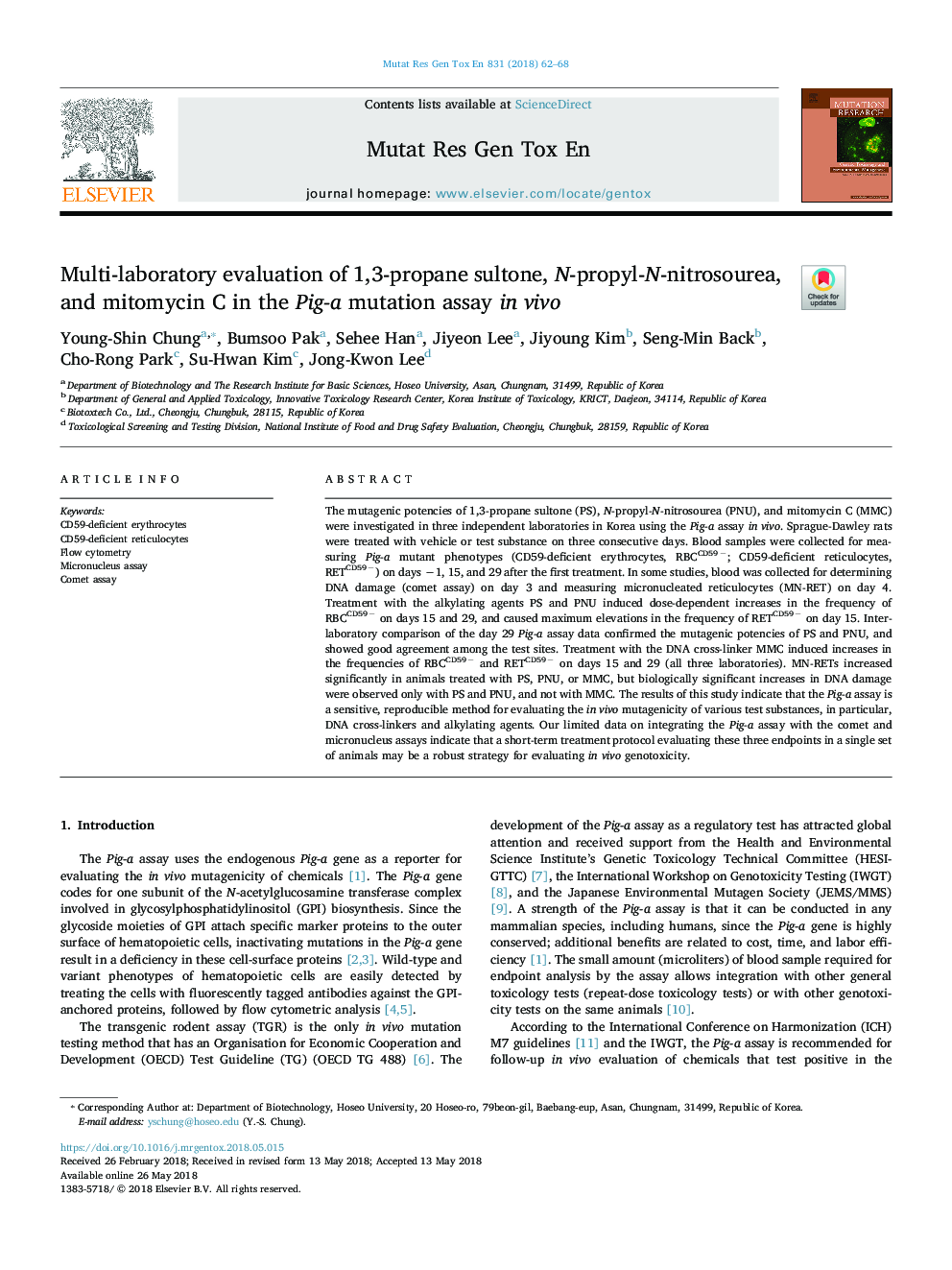| Article ID | Journal | Published Year | Pages | File Type |
|---|---|---|---|---|
| 8456194 | Mutation Research/Genetic Toxicology and Environmental Mutagenesis | 2018 | 7 Pages |
Abstract
The mutagenic potencies of 1,3-propane sultone (PS), N-propyl-N-nitrosourea (PNU), and mitomycin C (MMC) were investigated in three independent laboratories in Korea using the Pig-a assay in vivo. Sprague-Dawley rats were treated with vehicle or test substance on three consecutive days. Blood samples were collected for measuring Pig-a mutant phenotypes (CD59-deficient erythrocytes, RBCCD59â; CD59-deficient reticulocytes, RETCD59â) on days â1, 15, and 29 after the first treatment. In some studies, blood was collected for determining DNA damage (comet assay) on day 3 and measuring micronucleated reticulocytes (MN-RET) on day 4. Treatment with the alkylating agents PS and PNU induced dose-dependent increases in the frequency of RBCCD59â on days 15 and 29, and caused maximum elevations in the frequency of RETCD59â on day 15. Inter-laboratory comparison of the day 29 Pig-a assay data confirmed the mutagenic potencies of PS and PNU, and showed good agreement among the test sites. Treatment with the DNA cross-linker MMC induced increases in the frequencies of RBCCD59â and RETCD59â on days 15 and 29 (all three laboratories). MN-RETs increased significantly in animals treated with PS, PNU, or MMC, but biologically significant increases in DNA damage were observed only with PS and PNU, and not with MMC. The results of this study indicate that the Pig-a assay is a sensitive, reproducible method for evaluating the in vivo mutagenicity of various test substances, in particular, DNA cross-linkers and alkylating agents. Our limited data on integrating the Pig-a assay with the comet and micronucleus assays indicate that a short-term treatment protocol evaluating these three endpoints in a single set of animals may be a robust strategy for evaluating in vivo genotoxicity.
Related Topics
Life Sciences
Biochemistry, Genetics and Molecular Biology
Cancer Research
Authors
Young-Shin Chung, Bumsoo Pak, Sehee Han, Jiyeon Lee, Jiyoung Kim, Seng-Min Back, Cho-Rong Park, Su-Hwan Kim, Jong-Kwon Lee,
